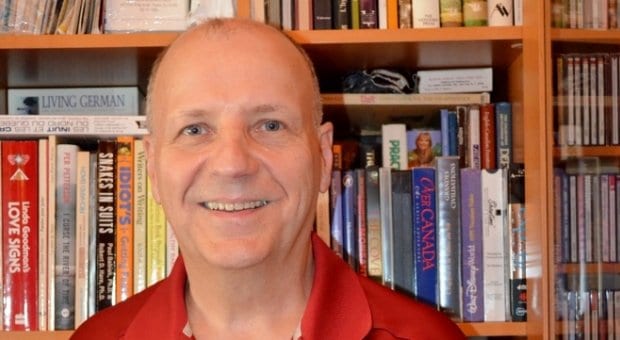Being gay and coming out in a small town can be difficult. In Charles Seems’s The Road to Dalhousie, the former civil servant grapples with his budding sexuality in a town of fewer than 6,000 and a tumultuous mother-son relationship that has a lasting impact.
Seems already has 24 how-to and non-fiction books to his credit, but fiction was never a calling, he says — until his gay book club chose I Curse the River of Time by Norwegian author Per Petterson.
Inspired by the parallels he found in the novel between the relationship Petterson’s main character has with his mother and Seems’s own relationship with his mother, and with encouragement from his partner, Seems began to record his personal history. The result is a fictional account drawn from his own life.
The Road to Dalhousie begins and ends in 1984 as Rick travels from Ottawa back to his childhood home of Dalhousie, New Brunswick, to visit his aging parents. Several flashbacks transport the reader to 1958, where Rick struggles with being different from his peers and is “sexually blackmailed” by another boy at boarding school.
The book is “based on a premonition” that his childhood friend Norman, who is also gay and heavily featured in the book, foresaw, Seems says.
Many years ago, Norman asked Seems to accompany him on a trip back to Dalhousie. As Seems had just visited his hometown, he says he resisted at first. But Norman insisted that since Seems’s parents were about to leave for a trip to Europe, Seems would never forgive himself if something happened to his family overseas.
“They leave on the trip, and my mother has a stroke on the way there,” Seems says. “She thinks it’s just fatigue. From the pictures that we got afterwards, we could see that she was holding herself up. Throughout the trip, she was partially paralyzed. Finally my sister intervened and brought her to the doctor. She was diagnosed with a brain tumour. She died three months later.”
It is clear from the book that Seems feared his mother but also had great admiration for the woman who instilled excellent morals in her children.
His greatest regret, he says, was not coming out to her directly.
“For some reason, I had a hard time telling my mother. I didn’t want to hurt her. I kept putting it back, and finally she’s the one who said, ‘Your aunt and I had a conversation,’ — she quoted in French — and said, ‘You and Michel are two girlfriends.’ She said, ‘Is that true?’ and I said I’m not going to lie. I still regret not having had the guts to tell my mother.”
Yet coming out to others in such a small town wasn’t as difficult. Dalhousie was home to several gay people in the 1960s, Seems says.
“I got to know a few of them, and I think by osmosis we figured out that we were gay. We started chumming around and realized we had the same inklings,” he says.
When a new librarian moved to Dalhousie, the group began congregating at his home.
“All of a sudden, we’ve got a gay community in a very small town,” Seems says.
The Road to Dalhousie strikes a dichotomy between fond memories, like a closeted congregation of gays, and painful remembrances.
Norman died of AIDS in 1987 on World AIDS Day. Seems says he lost “about 80 percent” of the people he knew in the 1980s. At first, he felt as though there was “something wrong with him” because he had not contracted HIV.
“I almost felt that those who were dying were advantaged in some way,” he says. “They were the majority, and again I was the minority within a minority.”
Seems asked himself, “Why am I being spared?” and decided that his survival must have a purpose. “I really tried to improve who I am, improve my life and give back to society,” he says.
He says his partner is encouraging him to make The Road to Dalhousie a trilogy. Part two will cover the “AIDS years,” while the final installment will examine his current partnership and how it transformed his life.
The Road to Dalhousie is available online and in stores now.


 Why you can trust Xtra
Why you can trust Xtra


